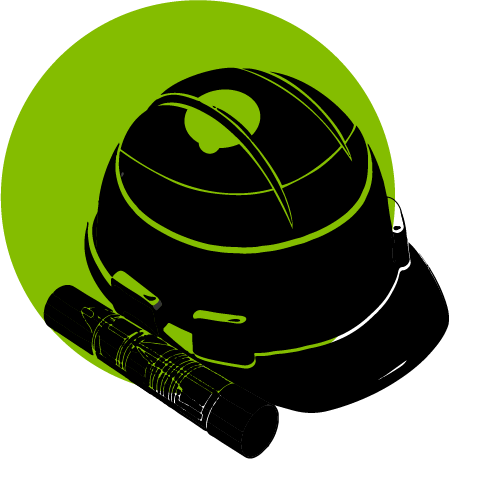Whether you are an employee, trainee, government official, or upper management, these tips can support your mental health journey.
Develop a Strong Support Network
A robust support network is essential for mental health and resilience. Surrounding yourself with friends, family, and colleagues who offer encouragement and understanding can make a significant difference. Invest time in nurturing relationships with those around you by regularly connecting with friends and family and seeking to develop strong bonds with colleagues.
Additionally, consider joining local or online support groups related to your profession or personal interests. Community organizations can also offer valuable connections and resources, providing an extended support network.
Practice Self-Care Regularly
Self-care is the practice of taking deliberate actions to maintain and improve your physical, emotional, and mental health. It is not selfish but necessary for overall well-being.
Self-care includes activities that make you feel relaxed, happy, and rejuvenated, such as reading a book, practicing yoga, or engaging in a hobby. Incorporating self-care into your daily routine is crucial. Schedule time for self-care activities each day, whether it’s a short walk, a hobby, or meditation, and make it a priority to ensure your overall health and well-being.
Stay Physically Active
Physical activity is closely linked to mental health. Exercise releases endorphins, which are natural mood lifters. Aim for at least 30 minutes of physical activity most days of the week, whether it’s a gym session, a run, or even a brisk walk.
Spending time outdoors is also beneficial. Activities like hiking, cycling, or gardening can significantly improve your mental health, providing both physical benefits and a sense of connection with nature.
Maintain a Balanced Diet
Nutrition plays a crucial role in mental health. A balanced diet can improve mood and energy levels. Focus on consuming a diet rich in fruits, vegetables, lean proteins, and whole grains. Essential nutrients like omega-3 fatty acids, vitamins, and minerals are vital for brain health.
Practicing mindful eating can also help. Pay attention to what you eat and how you eat, avoiding distractions during meals and savoring each bite. This practice can lead to better digestion and a more satisfying eating experience.
Get Adequate Sleep
Quality sleep is foundational for both mental and physical health. Establishing a regular sleep schedule by going to bed and waking up at the same time each day can significantly improve your sleep quality.
Creating a restful environment by keeping your bedroom cool, dark, and quiet is also essential. If you have trouble sleeping, try relaxation techniques before bed, such as reading or taking a warm bath, and avoid screens at least an hour before bedtime. These practices can help ensure you get the restorative sleep you need.
Manage Stress Effectively
Effective stress management is vital for maintaining mental health. Techniques such as mindfulness, meditation, and deep breathing exercises can help reduce stress and keep you calm and focused.
Time management is also key to reducing stress. Break tasks into smaller steps and prioritize them to avoid feeling overwhelmed. Remember to take regular breaks to avoid burnout, allowing yourself time to recharge and maintain productivity.
Set Realistic Goals
Setting and achieving realistic goals can boost confidence and motivation. Break down larger tasks into manageable steps and set short-term and long-term goals that are specific, measurable, achievable, relevant, and time-bound (SMART).
Recognizing and celebrating small successes can help maintain motivation and build resilience, providing a sense of accomplishment and progress.
Engage in Positive Thinking
Positive thinking can significantly impact mental health and resilience. Cultivating a positive mindset through practices like gratitude journaling and using affirmations can reinforce positive thoughts and help you focus on the good in your life and what you can control.
Avoid negative self-talk and replace it with constructive thoughts. When negative thoughts arise, question their validity and look for positive alternatives, which can help maintain a healthier outlook.
Stay Informed and Educated
Staying informed about mental health can empower you to make better choices for your well-being. Keeping up-to-date with reliable mental health information and understanding mental health topics can provide valuable insights and support.
Utilize resources like the NIMH’s page on Caring for Your Mental Health for further reading and support, ensuring you have access to the latest and most accurate information.
Conclusion
Maintaining mental health and building resilience is an ongoing journey. By implementing these tips, you can enhance your well-being and navigate the challenges of the civil engineering profession more effectively.
Start small, incorporate these practices into your daily life, and explore additional resources from the NIMH to support your mental health journey. Your mental well-being is just as important as your professional success, and taking steps to care for it will lead to a healthier, more fulfilling life.






















